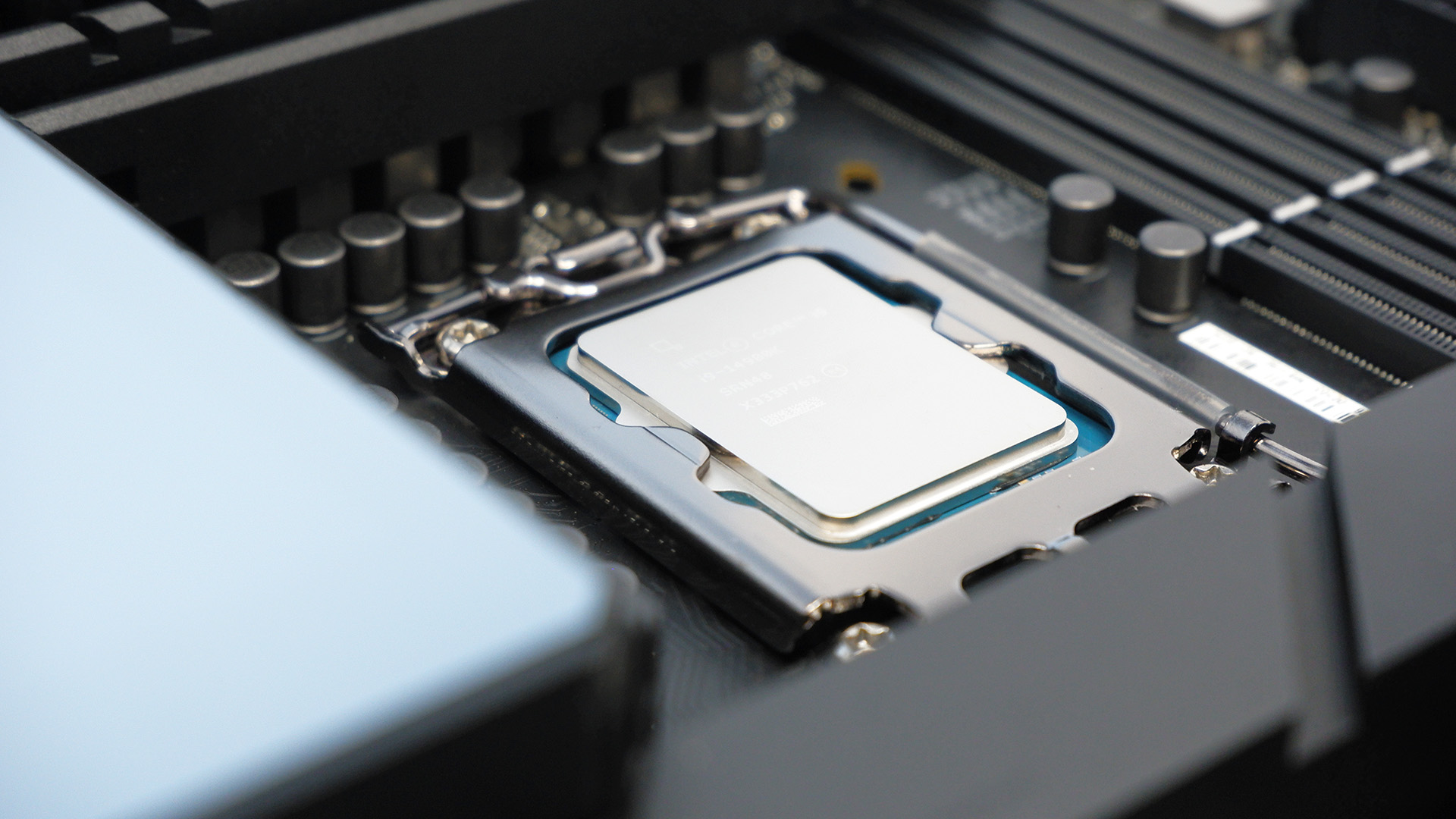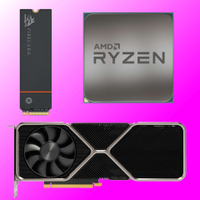
One might have thought all the Intel stability issue malarkey was behind us, given the official 0x129 microcode fix came out back in August. However, although this update was supposed to fix the issue, it wasn't a root cause fix.
Now, Intel's releasing a proper root cause fix for affected 13th and 14th Gen CPUs in its 0x12B microcode update. This update "addresses elevated voltage requests by the processor during idle and/or light activity periods" which have been narrowed down to being caused by a particular "clock tree circuit within the IA core".
In other words, Intel's narrowed down the problem to a particular circuit within the bulk of the CPU that houses all the P- and E-Cores. The problem is, as we already knew, a Vmin one, where voltage spikes cause the minimum operating voltage to increase over time as the CPU requires more and more power to remain stable, which increases degradation.
Intel's listed four scenarios that might lead to such a Vmin shift:
- Motherboards exceeding Intel's power recommendations
- An eTVB (Enhanced Thermal Velocity Boost) Microcode algorithm allowing Intel Core 13th and 14th Gen i9 CPUs to operate at higher "performance states even at high temperatures"
- High voltage requests from the processor "at a frequency and duration which can cause Vmin shift"
- The newly identified Microcode and BIOS code that requests "elevated core voltages which can cause Vmin shift especially during periods of idle and/or light activity"
The first of these just involves sticking to Intel's recommendations and the second and third were addressed with the previous 0x129 microcode update. The fourth one is the new one that the 0x12B microcode aims to fix.
Intel says it's "working with its partners to roll out the relevant BIOS update to the public", so we can expect motherboard vendors to release the updates soon.
While we can't say for certain until it's released, Intel indicates that installing the update shouldn't cause any performance impact, at least based on the couple of configurations it tested. In our tests of previous microcode updates, we noticed no performance degredation. The company does note, however, that "system performance is dependent on configuration and several other factors."
Keep up to date with the most important stories and the best deals, as picked by the PC Gamer team.
The Raptor Lake stability issues have certainly been around long enough and caused problems for enough people. Let's hope this supposed root cause fix can put the issue to bed.
Best CPU for gaming: Top chips from Intel and AMD.
Best gaming motherboard: The right boards.
Best graphics card: Your perfect pixel-pusher awaits.
Best SSD for gaming: Get into the game first.

Jacob got his hands on a gaming PC for the first time when he was about 12 years old. He swiftly realised the local PC repair store had ripped him off with his build and vowed never to let another soul build his rig again. With this vow, Jacob the hardware junkie was born. Since then, Jacob's led a double-life as part-hardware geek, part-philosophy nerd, first working as a Hardware Writer for PCGamesN in 2020, then working towards a PhD in Philosophy for a few years (result pending a patiently awaited viva exam) while freelancing on the side for sites such as TechRadar, Pocket-lint, and yours truly, PC Gamer. Eventually, he gave up the ruthless mercenary life to join the world's #1 PC Gaming site full-time. It's definitely not an ego thing, he assures us.


